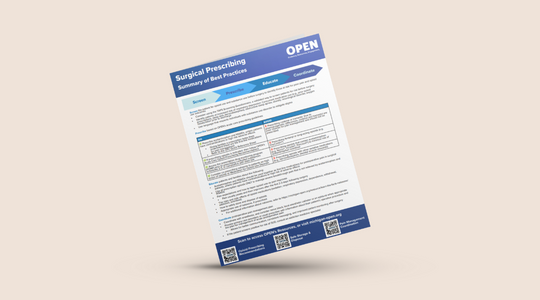Stay up to date with OPEN’s summary of best practices for prescribing after surgery.

____________________________________________________________________________________
Cite this work:
OPEN: Overdose Prevention Engagement Network. (2024). Surgical Prescribing: Summary of Best Practices. Retrieved from https://doi.org/10.56137/OPEN.000018